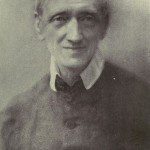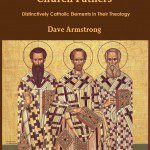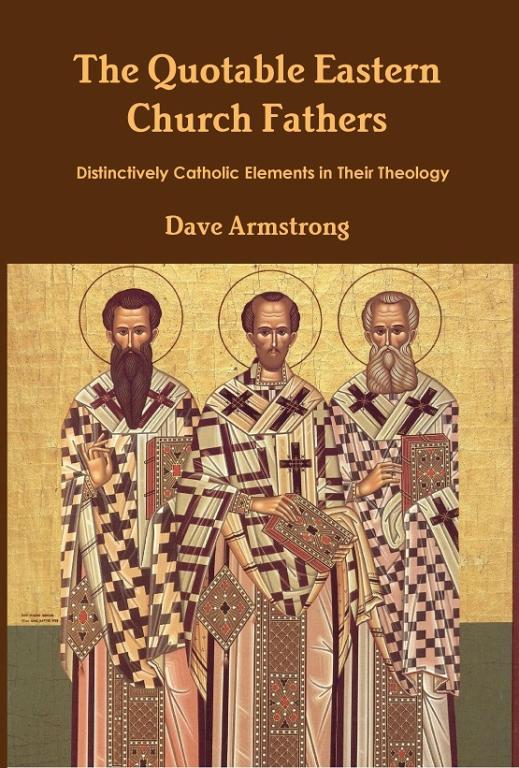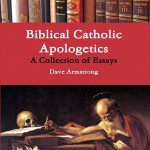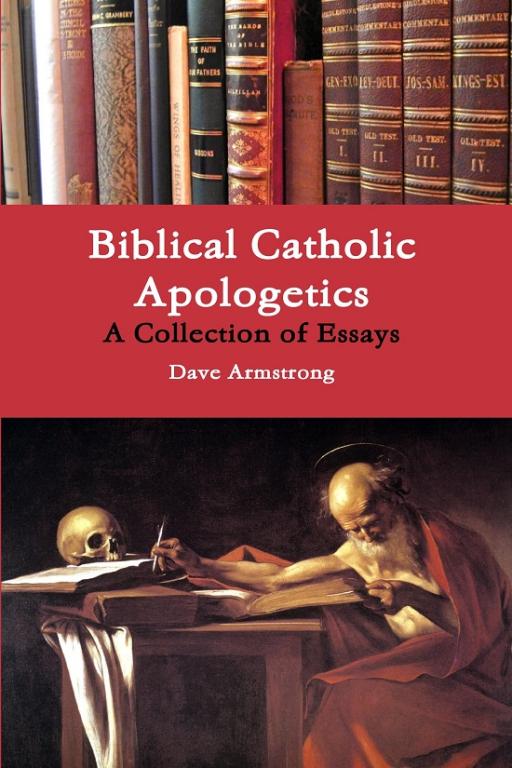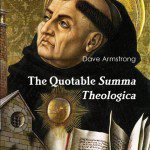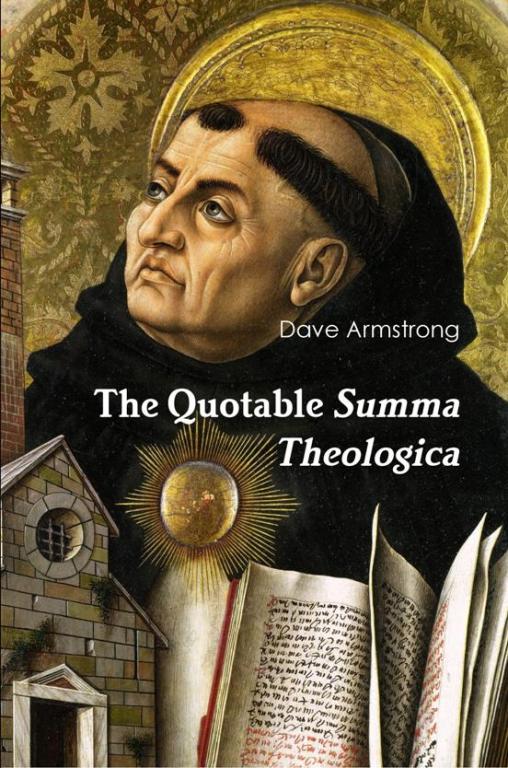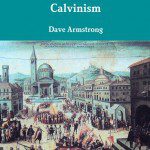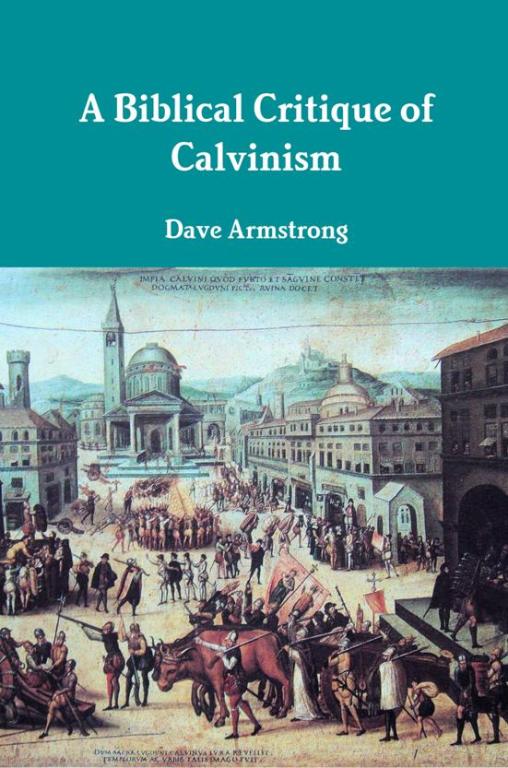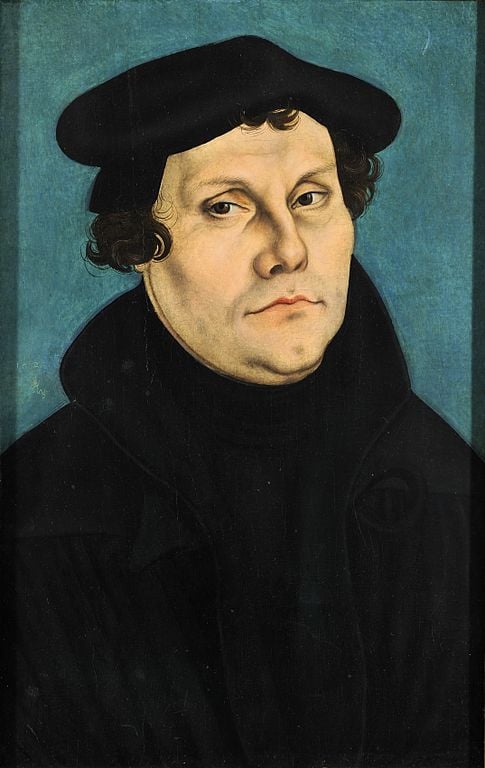Painting of Cardinal Newman (c. 1876), by Jane Fortescue Seymour, Lady Coleridge [public domain / Wikimedia Commons]
***
(8-20-13)
***
The portion in regular black color below was part of my original 691-page manuscript, The Quotable Newman. That was trimmed down to 415 pages for the Sophia edition (Sophia decided not to include the Index, for space’ sake), leaving many of the citations for the second volume.
I didn’t want all this work to go to waste, and decided to add the data from Vol. II, to make it complete. Even though it isn’t included in either volume, it has, I think, some usefulness in finding persons whom Cardinal Newman wrote to often, and for the factual information of their birth and death dates and conversion data, where known.
* * * * *
* * * * *
Lord Acton (John Emerich Edward Dalberg-Acton) [1834-1902]
19 July 1862 (Development of Doctrine)
19 July 1862 (Inquisition)
Lord Edwin Richard Windham Adare[1812-1871]
31 August 1846 (Development of Doctrine)
31 August 1846 (Papal Supremacy and Petrine Primacy)
Archdeacon John Allen [1810-1886]
8 January 1846 (Essay on the Development of Christian Doctrine)
12 April 1875 (Grace)
12 April 1875 (Scripture)
Thomas William (T. W.) Allies [1813-1903]
30 September 1842 (Fathers of the Church)
30 November 1879 (Liberalism and Nominalism; Theological)
30 November 1879 (Writing: His Own)
Mrs. Elizabeth Anstice [1807-1889]
18 December 1845 (Essay on the Development of Christian Doctrine)
18 December 1845 (Papal Infallibility)
20 December 1845 (Conversion and Converts)
Charles Appleton [1841-1879]
12 Jan. 1874 (Essay in Aid of a Grammar of Assent)
William Henry Archer [1825-1909]
25 Feb. 1878 (Oxford)
Arthur Arnold [1833-1902]
22 September 1872 (Papal Infallibility)
Matthew Arnold [1822-1888]
3 December 1871 (Communism)
3 December 1871 (Laity; the Faithful)
3 Jan. 1876 (Laity; the Faithful)
3 Jan. 1876 (Truth)
3 Jan. 1876 (Universities, Catholic)
Thomas Arnold [1823-1900; convert]
12 October 1862 (Fathers of the Church)
Edward Lowth Badely [1803-1868; Tractarian; received in 1852]
10 February 1842 (Heresy)
10 February 1842 (Lutheranism)
23 August 1844 (Conversion: His Own)
19 October 1845 (Conversion: His Own)
19 October 1845 (Essay on the Development of Christian Doctrine)
Bishop Richard Bagot of Oxford [1782-1854]
1841 (Baptism, Infant)
1841 (Church: “Roman Catholic”: Anglican View of)
1841 (Development of Doctrine)
1841 (Ecumenism; Non-Catholics)
1841 (Fathers of the Church)
1841 (Parochial and Plain Sermons)
1841 (Saints, Invocation of)
1841 (Tracts for the Times)
11 November 1841 (Denominationalism; Sectarianism)
George Sherston Baker [1814-1875]
9 March 1875 (Conscience)
Harmood W. Banner
8 November 1845 (Conversion: His Own)
George Slatyer Barrett [1839-1916]
13 October 1882 (Devotions)
Henry Spencer Kenrick Bellairs [b. 1840]
21 March 1882 (Science and Christianity)
Edward Bellasis [1800-1873; Tractarian; received in 1850]
16 February 1842 (Conversion: His Own)
5 August 1861 (Vocation: Calling)
20 August 1861 (Vocation: Calling)
Jan. or Feb. 1870 (Essay in Aid of a Grammar of Assent)
Mrs. Edward Bellasis [1815-1898]
4 Jan. 1875 (Letter to the Duke of Norfolk)Edward Bellasis, Jr. [1852-1922]
7 Oct. 1874 [Conversion; His Own]
Lady Constance Bellingham [d. 1891]
10 August 1877 (Papal Supremacy and Petrine Primacy)
Henry Bittleston [1816-1886]
14 June 1882 (Papal Infallibility)
John Rouse Bloxam [1837-1891]
18 Jan. 1876 (Conversion; His Own)
24 July 1877 (Oxford)
Eyton Bond
5 December 1884 (Hell)
12 December 1884 (Hell)
Sister Mary Gabriel (Susan) du Boulay [1826-1906; received in 1850]
25 June 1864 (Apologia pro Vita sua)
2 January 1870 (Essay in Aid of a Grammar of Assent)
2 January 1870 (Writing: His Own)
Henry Bourne
13 June 1848 (Conversion: His Own)
John William (J. W.) Bowden [1798-1844; Tractarian]
5 January 1840 (Conversion: His Own)
21 February 1840 (Conversion: His Own)
29 December 1842 (Oxford University Sermons)
21 February 1844 (Conversion: His Own)
Mrs. J. W. (Elizabeth) Bowden [1805-1896; received in July 1846]
1 March 1846 (Conversion: His Own)
1 March 1846 (Eucharist)
22 March 1846 (Conversion and Converts)
22 March 1846 (Conversion: His Own)
18 April 1846 (Conversion: His Own)
27 June 1846 (Providence)
24 November 1848 (Saints and Holiness)
Marianne Frances (Maggie) Bowden [1839-1926]
5 June 1866 (Conversion and Converts)
5 June 1866 (God’s Love)
Emily Bowles [1818-1905; received in 1843]
19 May 1863 (Papal Supremacy and Petrine Primacy)
1 May 1865 (Laity; the Faithful)
16 April 1866 (Conversion and Converts)
16 April 1866 (Theology and Theologians)
16 April 1866 (Writing: His Own)
11 November 1866 (Reform, Catholic)
8 January 1867 (Vocation: Calling)
30 April 1871 (Reform, Catholic)
5 January 1882 (Infidels)
15 June 1882 (Skepticism)
Lord Braye [1849-1928]
29 October 1882 (Old Age)
4 June 1884 (Vocation: Calling)
David Brown [1803-1897]
4 April 1874 (Science and Christianity)
14 Jan. 1875 (Ecumenism; Non-Catholics)
14 Jan. 1875 (Liberalism and Nominalism, Theological)
23 April 1878 (Writings; His Own) William Robert Brownlow[1830-1901]
25 October 1863 (Images)
13 April 1870 (Teleological Argument)
Miss Emily Buchanan
16 April 1875 (Conversion and Converts)
Reginald Buckler, O. P.[1840-1927; received in 1855]
15 April 1870 (Mary: Holiness and Immaculate Conception)
15 April 1870 (Papal Infallibility)
15 April 1870 (Theology and Theologians)
Frederick Capes [1816-1888]
2 December 1849 (Hell)
16 September 1850 (Science and Christianity)
14 November 1850 (Science and Christianity)
John Moore (J. M.) Capes [1812-1889; received in 1845, left the Church but later returned]
14 December 1848 (Protestantism; Evangelicalism)
14 December 1848 (Purgatory)
12 September 1872 (Papal Infallibility)
C. C. Catcliffe
6 January 1867 (Anglicanism)
Ulric Edmund Emmanuel Charlton [1855-1917]
2 October 1883 (Paganism and Christianity)
Lady Chatterton (Henrietta Georgiana Marcia Lascelles) [1806-1876]
26 May 1874 (Novels)
Mrs. Lydia Rose Christie [received in 1879]
5 November 1879 (Conversion and Converts)
29 December 1881 (Discussion; Argument)
Richard William (R. W.) Church [1815-1890; Tractarian]
24 December 1841 (Anglicanism)
24 December 1841 (Conversion: His Own)
25 December 1841 (Anglicanism)
23 April 1864 (Apologia pro Vita sua)
26 April 1864 (Apologia pro Vita sua)
2 May 1864 (Apologia pro Vita sua)
11 July 1865 (Music)
12 April 1875 (Ecumenism; Non-Catholics)
11 March 1879 (Cardinalate: His Own)
Mrs. William Robinson Clark
22 Nov. 1875 (Conversion and Converts)
31 Dec. 1875 (Conversion and Converts)
27 Sep. 1876 (Papal Infallibility) Bishop William Joseph Hugh Clifford of Clifton [1823-1893]
3 October 1883 (Scripture)
Robert Aston (R. A.) Coffin [1819-1885; received in Dec. 1845]
27 October 1848 (Writing)
Sir Henry Cole [1808-1882]
23 Oct. 1877 (Paganism and Christianity; Classics)
Edward Coleridge [1800-1883]
12 November 1844 (Conversion: His Own)
16 November 1844 (Conversion: His Own)
3 July 1845 (Conversion: His Own)
5 Nov. 1877 (Writings: His Own)
Henry James Coleridge [1822-1893]
26 April 1867 (Papal Supremacy and Petrine Primacy)
13 March 1870 (Essay in Aid of a Grammar of Assent)
5 February 1871 (Essay in Aid of a Grammar of Assent)
5 February 1871 (Essay on the Development of Christian Doctrine)
5 February 1871 (Old Age)
John Coleridge [1820-1894]
18 March 1884 (Writings: His Own)
Sir William Henry Cope [1811-1883]
10 December 1871 (Papal Infallibility)
13 February 1875 (Apologia pro Vita sua)
13 February 1875 (Papal Infallibility)
William John Copeland [1804-1885; Tractarian]
19 April 1864 (Apologia pro Vita sua)
20 April 1873 (Discussion; Argument)
5 April 1874 (Writings; His Own)
Augustus Craven
13 April 1875 (Development of Doctrine)
A. H. Cullen
12 July 1877 (Church, Sinners in)
12 July 1877 (Judgment)
John Dobrée (J. D.) Dalgairns [1818-1876; Tractarian; received in Sep. 1845]
10 December 1845 (Essay on the Development of Christian Doctrine)
15 November 1846 (Essay on the Development of Christian Doctrine)
8 December 1846 (Essay on the Development of Christian Doctrine)
31 December 1846 (Papal Supremacy and Petrine Primacy)
Margaret Dalrymple
10 April 1874 (Eucharist: Communion in One Species)
O’Neill Daunt
7 August 1870 (Papal Infallibility)
Shirley Day
27 September 1884 (Anglicanism)
William Dodsworth [1798-1861; received in 1850]
19 November 1839 (Conversion and Converts)
27 December 1841 (Conversion: His Own)
Sir James John Louis Donnet [1816-1905]
5 May 1883 (Witchcraft)
George T. Edwards
8 November 1882 (Eucharistic Adoration and Benediction)
8 November 1882 (Sacraments)
15 April 1883 (Atonement)
2 June 1883 (Gospel; Good News)
2 June 1883 (Salvation)
9 June 1883 (Crucifixes)
24 February 1887 (Ecumenism; Non-Catholics)
Thomas Edwards
15 April 1875 (Papal Infallibility)
Edgar Edmund (Canon) Estcourt [1816-1884; received in Dec. 1845]
2 June 1860 (Conversion and Converts)
Frederick William Faber [1814-1863; received in Nov. 1845]
4 October 1848 (Tractarianism)John Finlayson [1840-1906]
3 October 1874 (Essay on the Development of Christian Doctrine)
9 March 1875 (Theology and Theologians)
John Cowley Fisher [1807-1887]
22 April 1875 (Ecumenism; Non-Catholics)
John Woulfe Flanagan [1852-1929]
10 February 1881 (Writing)
William Foran
16 Oct. 1876 (Papal Infallibility)
Henry Formby [1816-1884; received in Jan. 1846]
19 or 20 October 1848 (Liberalism and Nominalism; Theological)
Robert E. Forsaith
25 Dec. 1876 (Devotions)
25 Dec. 1876 (Mary: Devotion to; Veneration of)
George Fottrell
10 December 1873 (Laity; the Faithful)
Mrs. William (Catherine) Froude [1809 or 1810-1878; received in 1857]
5 April 1839 (Papal Supremacy and Petrine Primacy)
9 April 1844 (Papal Supremacy and Petrine Primacy)
9 June 1844 (Conversion: His Own)
1 June 1845 (Essay on the Development of Christian Doctrine)
10 June 1845 (Essay on the Development of Christian Doctrine)
10 June 1845 (Writing: His Own)
16 June 1848 (Anglicanism)
16 June 1848 (Conversion and Converts)
16 June 1848 (Eucharistic Adoration and Benediction)
16 June 1848 (Saints, Intercession of)
27 June 1848 (Faith)
27 June 1848 (Faith and Works)
2 January 1855 (Devotions)
2 January 1855 (Mary: Devotion to; Veneration of)
8 August 1870 (Papal Infallibility)
March 1871 (Development of Doctrine)
March 1871 (Mary: Holiness and Immaculate Conception)
March 1871 (Papal Infallibility)
c. Oct. 1871 (Papal Infallibility)
9 July 1876 (Old Age)
Eliza Margaret (Isy) Froude [1840-1931]
24 April 1875 (Church, Infallibility of)
24 April 1875 (Papal Infallibility)
28 July 1875 (Papal Infallibility)
28 July 1875 (Perspicuity [Total Clearness] of Scripture [Falsity of])
15 March 1877 (God and Moral Law)
24 Nov. 1878 (Satire)
William Froude [1810-1879]
11 August 1851 (Confession)
16 April 1879 (Discussion; Argument)
29 April 1879 (Development of Doctrine)
29 April 1879 (Papal Infallibility)
29 April 1879 (Science and Christianity)
Lady Georgiana Fullerton [1812-1885]
21 October 1864 (Papal Infallibility)
10 Nov. 1874 (Old Age)
10 Nov. 1874 (Writing; His Own)
19 Jan. 1975 (Apologetics and Evangelism)
Charles Wellington (Canon) Furse [1821-1900]
2 May 1870 (Absolution)
29 August 1873 (Conversion: His Own)
Miss Maria Rosina (M. R.) de Giberne (Sister Maria Pia after 1863) [1802-1885; received in Dec. 1845]
7 November 1844 (Conversion: His Own)
8 January 1845 (Conversion: His Own)
30 March 1845 (Conversion: His Own)
28 January 1846 (Conversion: His Own)
2 February 1846 (Conversion and Converts)
11 February 1846 (The Church: Ecclesiology)
6 June 1848 (Papal Supremacy and Petrine Primacy)
10 February 1869 (Cardinalate: His Own)
10 February 1869 (Theology and Theologians)
25 July 1876 (Prayer)
22 January 1878 (Angels)
William Ewart Gladstone [1809-1898]
26 Feb. 1875 (Conversion; His Own]
William Philip Gordon [1827-1900]
28 Feb. 1876 (Prayer)
Miss H.
31 December 1850 (Art)
Mother Margaret Mary Hallahan [1802-1868]
25 June 1864 (Apologia pro Vita sua)
Anthony John (A. J.) Hanmer [1817-1907; received in Dec. 1849]
11 December 1845 (Conversion and Converts)
10 February 1848 (Anglicanism)
10 February 1848 (Conversion and Converts)
10 February 1848 (Conversion: His Own)
10 February 1848 (Faith)
Thomas Norton Harper, S. J. [1821-1893]
18 February 1864 (Discussion; Argument)
John Hayes
13 April 1869 (Writing: His Own)
Lady Herbert of Lea [1822-1911]
29 June 1874 (Conversion and Converts)
28 April 1875 (Conversion and Converts)
6 October 1879 (Skepticism)
Lady (Margaret) Heywood [received in 1876]
15 Nov. 1875 (Conversion and Converts)
8 March 1876 (Faith and Reason)
8 March 1876 (Church, The [Ecclesiology]) Edmond G. A. Holmes [1850-1936]
13 Aug. 1875 (Scientism)
Miss Mary Holmes [c. 1815-1878; received in 1844]
15 August 1841 (Conversion and Converts)
15 August 1841 (Saints, Invocation of)
6 December 1841 (Eucharist)
1 August 1842 (Conversion and Converts)
8 February 1843 (Conversion: His Own)
7 April 1850 (Orthodoxy)
31 July 1850 (Grace)
31 July 1850 (Mary: Intercessor, Mediatrix, and Spiritual Mother)
18 November 1859 (Writing: His Own)
17 October 1861 (Purgatory)
2 March 1870 (Essay in Aid of a Grammar of Assent)
2 March 1870 (Writing: His Own)
15 May 1871 (Papal Infallibility)
7 August 1874 (Music)
24 Feb. 1875 (Salvation: Absolute Assurance of, Unattainable)
24 Feb. 1875 (Salvation, Moral Assurance of)
James Robert (J. R.) Hope (Hope-Scott after 1853) [1812-1873; received in 1851]
17 October 1841 (Conversion: His Own)
19 November 1841 (Conversion and Converts)
24 November 1841 (Conversion: His Own)
2 December 1841 (Conversion: His Own)
14 May 1845 (Conversion: His Own)
10 June 1845 (Conversion: His Own)
23 December 1845 (Providence)
2 May 1864 (Apologia pro Vita sua)
11 April 1867 (Papal Infallibility)
Hope-Scott, Mary Monica [1852-1920]
28 April 1875 (Old Age)
Gerard Manley Hopkins [1844-1889; received in 1866]
3 March 1887 (Ireland and Irishmen)
Vincent Joseph Hornyold, S. J. [1849-1929]
6 April 1879 (Providence)
Lord Edward Howard of Glossop [1818-1883]
27 April 1872 (Councils, Ecumenical)
27 April 1872 (Papal Infallibility)
27 April 1872 (Trent, Council of)
Baron Friedrich von Hügel [1852-1925]
15 Jan. 1875 (Writings; His Own)
12 July 1877 (Evil, Problem of)
Arthur Wollaston Hutton [1848-1912]
20 August 1879 (Writing: His Own)
Richard Holt Hutton [1826-1897]
12 October 1883 (Papal Sins, Limitations, and lack of Impeccability)
12 October 1883 (Reform, Catholic)
Père Hyacinthe
24 November 1870 (Papal Infallibility)
24 November 1870 (Schism)
R. W. Jelf
1841 (Anglicanism)
1841 (Apologetics and Evangelism)
1841 (Church: “Roman Catholic”: Anglican View of)
1841 (Images)
1841 (Saints, Invocation of)
1841 (Trent, Council of)
Robert Charles Jenkins [1815-1896]
25 Feb. 1875 (Papal Infallibility)
2 Dec. 1875 (Papal Sins, Limitations, and Lack of Impeccability)
2 Dec. 1875 (Rule of Faith)
24 July 1876 (Church, Indefectibility of)
27 Feb. 1877 (Papal Supremacy and Petrine Primacy)
11 January 1879 (Mary: Assumption of)
James Jones, S. J. [1829-1893]
22 Jan. 1875 (Writing: His Own)
2 April 1881 (Writing: His Own)
John Keble [1792-1866; Tractarian]
24 October 1841 (Conversion: His Own)
26 December 1841 (Anglicanism)
14 March 1843 (Conversion: His Own)
4 May 1843 (Conversion: His Own)
4 May 1843 (Papal Infallibility)
18 May 1843 (Conversion: His Own)
20 August 1843 (Writing: His Own)
6 September 1843 (Conversion: His Own)
23 January 1844 (Conversion: His Own)
26 February 1844 (Idolatry)
8 June 1844 (Conversion: His Own)
13 June 1844 (Conversion: His Own)
21 November 1844 (Conversion: His Own)
15 August 1863 (Angels)
27 April 1864 (Apologia pro Vita sua)
Lady Henry Kerr [1811-1884]
4 Jan. 1875 (Letter to the Duke of Norfolk)
James Knowles [1831-1908]
7 April 1875 (Papal Infallibility)
Mrs. Frederick George Lee [1838-1890]
2 April 1881 (Saints, Communion of; Veneration of)
William Leigh, Jr. [1829-1906]
24 November 1873 (Paganism and Christianity)
Pope Leo XIII [1810-1903; became pope in 1878]
August 1879 (Apologetics and Evangelism)
William Samuel (W. S.) Lilly [1840-1919]
23 Jan. 1875 (Ordination; Holy Orders)
25 July 1876 (Science and Christianity)
7 December 1882 (Science and Christianity)
17 August 1884 (Tradition, Apostolic)
Ambrose Phillipps de Lisle [1809-1878]
April or May 1870 (Papal Infallibility)
24 July 1870 (Papal Infallibility)
6 Nov. 1874 (Papal Infallibility)
9 Jan. 1875 (Letter to the Duke of Norfolk)
12 February 1875 (Teleological Argument)
12 March 1875 (Church, The [Ecclesiology] )
21 May 1876 (Truth)
Richard Frederick Littledale [1833-1890]
9 March 1879 (Discussion; Argument)
Mrs. Alexander (Martha) Lockhart [c. 1798-1872; received in July 1846]
26 June 1846 (Conversion: His Own)
26 June 1846 (Ecumenism; Non-Catholics)
Frederick Lucas [1812-1855; received in 1839]
20 January 1848 (Anglicanism)
20 January 1848 (Discussion; Argument)
20 January 1848 (Englishmen)
William Rowe (W. R.) Lyall [1788-1857]
16 July 1842 (Anglicanism)
Archibald MacCall [1852-1926; received in 1875]
27 April 1874 (Anglicanism)
27 April 1874 (Conversion and Converts)
Malcolm MacColl [1831-1907]
6 March 1875 (Councils, Ecumenical)
Henry Edward Cardinal Manning [1808-1892; received in 1851; bishop in 1865 and Cardinal in 1875]
14 October 1843 (Conversion: His Own)
25 October 1843 (Conversion: His Own)
24 December 1843 (Conversion: His Own)
William Maskell [1814-1890; received in June 1870]
15 February 1876 (Papal Infallibility)
15 February 1876 (Papal Supremacy and Petrine Primacy)
Mrs. Maskell
6 January 1877 (Liberalism and Nominalism; Theological)
Mr. McGhee
28 April 1842 (Discussion; Argument)
Charles Meynell [1828-1882]
27 July 1869 (Essay in Aid of a Grammar of Assent)
C. R. Miller
22 April 1875 (Perspicuity [Total Clearness] of Scripture [Falsity of])
William Monsell [1812-1892; received in 1850 (later, Lord Emly)]
17 June 1863 (Church and State; Caesaropapism; Erastianism)
9 Oct. 1874 (Papal Infallibility)
30 April 1877 (Church, Indefectibility of)
Robert Monteith [1812-1884; received in 1846]
21 July 1848 (Anglicanism)
Edward Moore [1835-1916]
16 June 1878 (Purgatory)
Bishop David Moriarty [1814-1877]
Early 1870 (Essay on the Development of Christian Doctrine)
20 March 1870 (Papal Infallibility)
John Morley [1838-1923]
20 Nov. 1877 (Writings; His Own)
Anne Mozley [1809-1891; sister-in-law of Newman’s sisters]
30 Dec. 1874 (Conversion; His Own)
25 April 1876 (Old Age)
6 July 1878 (Discussion; Argument)
6 July 1878 (Essay on the Development of Christian Doctrine)
1 March 1879 (Cardinalate: His Own)
Harriett (Mrs. Thomas) Mozley [1803-1852; oldest of Newman’s sisters]
29 September 1843 (Conversion: His Own)
Henry Williams Mozley
25 July 1879 (Cardinalate: His Own)
James Bowling (J. B.) Mozley [1813-1878]
1 September 1843 (Conversion: His Own)
24 November 1843 (Conversion: His Own)
2 April 1845 (Conversion: His Own)
Jemima (Mrs. John) Mozley [1808-1879; Newman’s second eldest sister]
25 February 1840 (Conversion: His Own)
15 March 1841 (Writing: His Own)
16 November 1841 (Conversion and Converts)
28 August 1843 (Conversion: His Own)
22 September 1843 (Conversion: His Own)
21 May 1844 (Conversion: His Own)
24 November 1844 (Conversion: His Own)
December 1844 (Conversion: His Own)
22 December 1844 (Conversion: His Own)
11 February 1845 (Conversion and Converts)
15 March 1845 (Conversion: His Own)
17 August 1845 (Writing: His Own)
9 October 1845 (Conversion: His Own)
14 October 1845 (Conversion: His Own)
2 December 1848 (Papal Supremacy and Petrine Primacy)
18 May 1863 (Writing)
18 May 1863 (Writing: His Own)
John Rickards Mozley [1840-1931; son of John and Jemima Mozley; Newman’s nephew]
19 April 1874 (Church, Sinners in)
19 April 1874 (Science and Christianity)
19 April 1874 (Scientism)
1 April 1875 (Church and Social Change)
1 April 1875 (Evil, Problem of)
1 April 1875 (Faith and Reason)
4 April 1875 (Atheism and Agnosticism)
4 April 1875 (Church, Sinners in)
4 April 1875 (Inquisition / Temporal Punishments)
4 April 1875 (Papal Sins, Limitations, and Lack of Impeccability)
21 April 1875 (Denominationalism; Sectarianism)
21 April 1875 (Church, Sinners in)
3 Dec. 1875 (Church, The [Ecclesiology])
3 Dec. 1875 (Paganism and Christianity; Classics)
10 Nov. 1877 (Materialism [Wealth for its Own Sake])
10 Nov. 1877 (Science and Christianity)
10 March 1878 (Discussion; Argument)
26 February 1880 (Beatific Vision)
24 October 1881 (Ireland and Irishmen)
March 1884 (God’s Love)
Thomas Mozley [1806-1893]
7 March 1841 (Tracts for the Times)
Miss G. Munro [c. 1823-c. 1913; received in Nov. 1845]
11 February 1850 (Saints and Holiness)
J. J. Murphy
1 June 1873 (Ecumenism; Non-Catholics)
1 June 1873 (Total Depravity)
C. J. Myers
25 February 1844 (Conversion: His Own)
J. H. Willis Nevins
19 June 1874 (Church, Infallibility of)
25 June 1874 (Church, Infallibility of)
25 June 1874 (Mary: Holiness and Immaculate Conception)
Francis William Newman [1805-1897; Newman’s youngest brother]
18 January 1860 (Atheism and Agnosticism)
18 January 1860 (Conversion and Converts)
Duke of Norfolk (Henry Fitzalan Howard) [1847-1917]
20 February 1879 (Cardinalate: His Own)
16 May 1879 (Angels)
1 January 1880 (Writing: His Own)
James Spencer Northcote [1821-1907; received in Jan. 1846]
8 February 1846 (Conversion: His Own)
8 February 1846 (Essay on the Development of Christian Doctrine)
20 Sep. 1874 (Doctors of the Church)
20 Sep. 1874 (Saints and Holiness)
John William Ogle [1824-1905]
4 January 1882 (Teleological Argument)
P. Sprague Oram
6 May 1884 (Grace)
Miss (Jane) Parker
9 October 1846 (Conversion: His Own)
Mrs. Pearson
1 April 1881 (Saints, Communion of; Veneration of)
William Goodenough Penny [1815-1885]
20 May 1878 (Scripture, Inspiration of)
A. P. Perceval
12 March 1841 (Tracts for the Times)
Alfred Reginald Perring
29 March 1879 (Conversion: His Own)
E. J. Phipps
3 July 1848 (Anglicanism)
3 July 1848 (The Church: Ecclesiology)
3 July 1848 (Conversion: His Own)
3 July 1848 (Discussion; Argument)
Sister Maria Pia
[see Miss Maria Rosina (M. R.) de Giberne]
Basil Montague Pickering [1835-1878]
23 Oct. 1877 (Papal Infallibility)
John Julius Plumer [1814-1875; received in 1846]
19 June 1846 (Ecumenism; Non-Catholics)
Alfred Plummer [1841-1926]
21 Feb. 1876 (Liberalism and Nominalism, Theological)
17 Oct. 1876 (Discussion; Argument)
4 March 1878 (Oxford)
Charles John Plumptre [1818-1887]7 June 1874 (Englishmen)
Edward Hayes Plumptre [1821-1891]
14 September 1884 (Faith and Reason)
Mrs. John Podmore
12 Feb. 1875 (Papal Infallibility)
Mother Mary Imelda Poole [1815-1881]
25 June 1864 (Apologia pro Vita sua)
2 April 1866 (Mary: Devotion to; Veneration of)
Jan. or Feb. 1870 (Essay in Aid of a Grammar of Assent)
March 1879 (Cardinalate: His Own)
Simeon Lloyd (S. L.) Pope [1802-1855]
4 September 1842 (Anglicanism)
4 September 1842 (Conversion and Converts)
Edward Bouverie Pusey [1800-1882; Tractarian]
20 March 1841? (Creation; Nature)
16 October 1842 (Conversion: His Own)
19 February 1844 (Conversion: His Own)
25 February 1845 (Conversion: His Own)
14 March 1845 (Papal Supremacy and Petrine Primacy)
21 February 1846 (Conversion and Converts)
5 September 1865 (Essay on the Development of Christian Doctrine)
5 September 1865 (Mary: Devotion to; Veneration of)
17 November 1865 (Papal Infallibility)
23 March 1867 (Beatific Vision)
23 March 1867 (Doctrine; Dogma)
23 March 1867 (Galileo)
23 March 1867 (Papal Infallibility)
23 March 1867 (Papal Supremacy and Petrine Primacy)
23 March 1867 (Rule of Faith)
20 April 1874 (Writings; His Own)
4 January 1879 (Hell)
Peter le Page Renouf [1822-1897]
21 June 1868 (Papal Infallibility)
Samuel Rickards [1796-1865]
1 December 1841 (Conversion: His Own)
1 December 1841 (Writing: His Own)
Frederick Rogers (Lord Blachford after 1871) [1811-1889; Tractarian]
22 September 1839 (Conversion: His Own)
25 November 1840 (Conversion: His Own)
10 January 1841 (Discussion; Argument)
22 April 1864 (Apologia pro Vita sua)
1 May 1864 (Apologia pro Vita sua)
3 June 1874 (Apologetics and Evangelism)
11 April 1875 (Letter to the Duke of Norfolk)
11 April 1875 (Old Age)
7 Nov. 1875 (Skepticism)
17 Nov. 1875 (Matter)
11 Dec. 1877 (Skepticism)
Miss Rowe
21 June 1874 (Papal Supremacy and Petrine Primacy)
3 Sep. 1874 (Transubstantiation)
7 March 1875 (Temptation)
Charles William Russell [1812-1880]
13 April 1841 (Saints, Communion of; Veneration of)
20 February 1848 (Essay on the Development of Christian Doctrine)
12 April 1874 (Oxford)
9 April 1875 (Theology and Theologians)
George Dudley Ryder [1810-1880; received in 1846]
22 July 1832 (Celibacy)
George Lisle Ryder [1838-1905; Newman’s godson]
20 March 1879 (Cardinalate: His Own)
Henry Ignatius Dudley Ryder [1837-1907]
25 April 1879 (Providence)
Mrs. George (Sophia Lucy) Ryder [1814-1850]
28 March 1848 (Mary: Devotion to; Veneration of)
Marquise de Salvo [b.c. 1815; received in Feb. 1846]
14 December 1845 (Conversion: His Own)
18 December 1845 (Conversion and Converts)
18 August 1846 (Apologetics and Evangelism)
18 August 1846 (Conversion and Converts)
11 June 1848 (Mary: Devotion to; Veneration of)
11 June 1848 (Rosary)
John Douglas Sandford [1832-1892; received in ?]
21 Oct. 1876 (Church, Infallibility of)
21 Oct. 1876 (Development of Doctrine)
21 Oct. 1876 (Ignorance, Invincible)
21 Oct. 1876 (Mary: Holiness and Immaculate Conception)
21 Oct. 1876 (Purgatory)
21 Oct. 1876 (Rule of Faith)
31 Oct. 1876 (Rule of Faith)
6 May 1877 (Mary, Blessed Virgin [General])
6 May 1877 (Mary, Perpetual Virginity of)
6 May 1877 (Theosis; Deification)
22 May 1878 (Mary: Devotion to; Veneration of)
Mrs. Sconce
19 Aug. 1875 (Divorce)
James Scratton [1825-1884; received in 1851]
6 Sep. 1876 (Science and Christianity)
Lady (Maria Theresa) Shrewsbury [d. 1856]
29 April 1848 (Conversion: His Own)
Lady (Louisa Edith) Simeon [1843-1895]
10 November 1867 (Papal Infallibility)
25 June 1869 (Apologetics and Evangelism)
8 March 1879 (Cardinalate: His Own)
A. Spurrier
11 December 1886 (Church, Sinners in)
Henry Stacke
9 February 1875 (Papal Infallibility)
12 February 1875 (Papal Infallibility)
12 February 1875 (Papal Supremacy and Petrine Primacy)
James Fitzjames Stephen [1829-1894]
14 Feb. 1876 (Discussion; Argument)
Miss Maria Trench [1828-1917]
8 September 1875 (Writing: His Own)
Archbishop William Bernard Ullathorne [1806-1889; became a bishop in 1850]
2 November 1848 (Conversion: His Own)
2 November 1848 (Saints and Holiness)
8 January 1867 (Discussion; Argument)
28 January 1870 (Councils, Ecumenical)
28 January 1870 (Essay in Aid of a Grammar of Assent)
28 January 1870 (Papal Infallibility)
2 February 1879 (Cardinalate: His Own)
Aubrey de Vere [1814-1902; received in 1851]
31 August 1870 (Essay in Aid of a Grammar of Assent)
John Thomas Walford, S. J. [1834-1894]
19 May 1870 (Anglicanism)
John Walker [1817-1878]
2 November 1847 (Development of Doctrine)
William (Canon) Walker [1820-1893]
5 August 1864 (Writing: His Own)
10 November 1867 (Councils, Ecumenical)
J. L. Walton
9 September 1880 (Indulgences)
9 September 1880 (Purgatory)
Catherine Ward [c. 1813-1897; received in July 1849]
25 September 1848 (Ecumenism; Non-Catholics)
25 September 1848 (Tractarianism)
12 October 1848 (Tractarianism)
18 November 1848 (Church, Infallibility of)
18 November 1848 (Crucifixes)
18 November 1848 (Development of Doctrine)
18 November 1848 (Doctrine; Dogma)
18 November 1848 (Essay on the Development of Christian Doctrine)
18 November 1848 (Mary: Devotion to; Veneration of)
18 November 1848 (Rosary)
30 November 1848 (Denominationalism; Sectarianism)
19 December 1848 (Conversion: His Own)
19 December 1848 (Protestantism; Evangelicalism)
Wilfrid Philip Ward [1856-1916]
30 and 31 January 1885 (Apologetics and Evangelism)
31 January 1885 (Miracles)
31 January 1885 (Protestantism; Evangelicalism)
William George Ward [1812-1882; Tractarian; received in Sep. 1845]
15 March 1862 (Writing: His Own)
18 February 1866 (Papal Infallibility)
18 February 1866 (Theology and Theologians)
Mrs. Francis. J. (Eleanor) Watt
9 July 1876 (Angels)
Samuel William Wayte [1819-1898]
15 Dec. 1877 (Oxford)
Richard Westmacott [1799-1872]
11 July 1845 (Conversion: His Own)
Archbishop Richard Whately [1787-1863]
11 November 1834 (Conversion: His Own)
Joseph Whitaker [1820-1895]
23 June 1884 (Essay on the Development of Christian Doctrine)
Robert Whitty, S. J. [1817-1895]
12 April 1870 (Papal Infallibility)
24 March 1878 (Cardinalate: His Own)
20 Dec. 1878 (Theology and Theologians)
Agnes Wilberforce [1845-1890]5 March 1878 (Psalms)
Henry William Wilberforce [1807-1873; received in August 1850]
27 April 1845 (Conversion: His Own)
27 January 1846 (Conversion: His Own)
10 March 1846 (Conversion and Converts)
29 May 1846 (Conversion and Converts)
8 June 1846 (Anglicanism)
8 June 1846 (Mass, Sacrifice of)
8 June 1846 (Papal Supremacy and Petrine Primacy)
10 June 1846 (Antiquity: The Early Church)
25 June 1846 (Papal Supremacy and Petrine Primacy)
25 June 1846 (Saints and Holiness)
4 July 1846 (Papal Supremacy and Petrine Primacy)
24 September 1846 (Worship)
12 January 1848 (Mary, Blessed Virgin)
19 January 1848 (Tractarianism)
30 November 1848 (Conversion: His Own)
7 March 1849 (Anglicanism)
7 March 1849 (Essay on the Development of Christian Doctrine)
28 December 1850 (Discussion; Argument)
24 August 1864 (Conversion and Converts)
16 April 1867 (Laity; the Faithful)
21 July 1867 (Papal Infallibility)
20 August 1869 (Vocation: Calling)
Robert Isaac Wilberforce [1802-1857; Tractarian; received in 1854]
16 November 1844 (Conversion: His Own)
Mrs. Henry William Wilberforce (Mary Sargent) [1811-1878; received in June 1850]
17 November 1834 (Church: “Roman Catholic”: Anglican View of)
17 November 1834 (Conversion: His Own)
17 November 1834 (Eucharist)
17 November 1834 (Mass, Sacrifice of)
17 November 1834 (Purgatory)
17 November 1834 (Saints, Communion of; Veneration of)
9 Jan. 1875 (Letter to the Duke of Norfolk)
Samuel Charles Wilks [1789-1872]
8 November 1845 (Anglicanism)
Mrs. Margaret A. Wilson [convert]
20 October 1870 (Papal Infallibility)
1 June 1874 (Writings; His Own)
3 August 1874 (Faith)
3 August 1874 (Liberalism and Nominalism, Theological)
21 Feb. 1875 (Faith and Works)
Nicholas Patrick Stephen Cardinal Wiseman [1802-1865; bishop and Cardinal in 1850]
6 April 1841 (Ecumenism; Non-Catholics)
4 October 1849 (Conversion: His Own)
Charlotte Wood
5 Nov. 1874 (Truth)
11 Jan. 1875 (Papal Infallibility)
Samuel Francis (S. F.) Wood [1809-1843]
6 December 1841 (Conversion: His Own)
13 December 1841 (Conversion: His Own)
13 December 1841 (Eucharist)
Miss Henrietta Woodgate
11 May 1881 (Vocation: Calling)
Henry Arthur Woodgate [1801-1874]
10 Jan. 1874 (Angels)
13 Feb. 1874 (Confession)
Clarence E. Woodman [1852-1924; received in July 1875]
11 May 1875 (Church, Infallibility of)
11 May 1875 (Lies)
Mrs. Albon Woodroffe
16 August 1873 (Conversion: His Own)
Alice J. Wotherspoon
27 July 1875 (Ecumenism; Non-Catholics)
X. Y., Esq.
8 January 1864 (Anti-Catholicism [Prejudice])
J. R. Young
18 May 1881 (Idolatry)
18 May 1881 (Mary, Blessed Virgin)
* * * * *
Uploaded on 26 August 2013.


